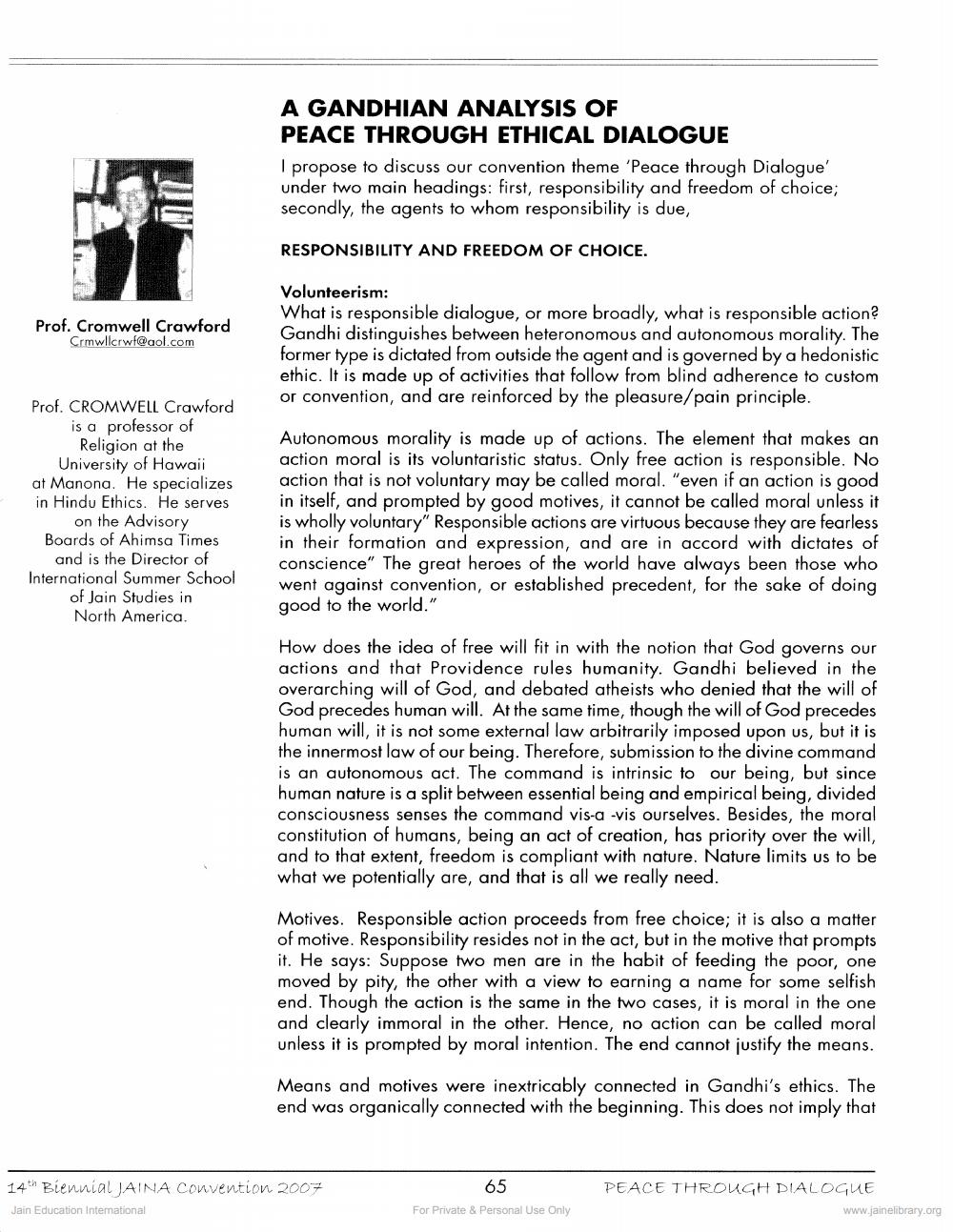________________
A GANDHIAN ANALYSIS OF PEACE THROUGH ETHICAL DIALOGUE
propose to discuss our convention theme 'Peace through Dialogue' under two main headings: first, responsibility and freedom of choice; secondly, the agents to whom responsibility is due,
RESPONSIBILITY AND FREEDOM OF CHOICE.
Prof. Cromwell Crawford
[email protected]
Volunteerism: What is responsible dialogue, or more broadly, what is responsible action? Gandhi distinguishes between heteronomous and autonomous morality. The former type is dictated from outside the agent and is governed by a hedonistic ethic. It is made up of activities that follow from blind adherence to custom or convention, and are reinforced by the pleasure/pain principle.
Prof. CROMWELL Crawford
is a professor of
Religion at the University of Hawaii at Manona. He specializes in Hindu Ethics. He serves
on the Advisory Boards of Ahimsa Times
and is the Director of International Summer School
of Jain Studies in North America.
Autonomous morality is made up of actions. The element that makes an action moral is its voluntaristic status. Only free action is responsible. No action that is not voluntary may be called moral. "even if an action is good in itself, and prompted by good motives, it cannot be called moral unless it is wholly voluntary" Responsible actions are virtuous because they are fearless in their formation and expression, and are in accord with dictates of conscience" The great heroes of the world have always been those who went against convention, or established precedent, for the sake of doing good to the world."
How does the idea of free will fit in with the notion that God governs our actions and that Providence rules humanity. Gandhi believed in the overarching will of God, and debated atheists who denied that the will of God precedes human will. At the same time, though the will of God precedes human will, it is not some external law arbitrarily imposed upon us, but it is the innermost law of our being. Therefore, submission to the divine command is an autonomous act. The command is intrinsic to our being, but since human nature is a split between essential being and empirical being, divided consciousness senses the command vis-a-vis ourselves. Besides, the moral constitution of humans, being an act of creation, has priority over the will, and to that extent, freedom is compliant with nature. Nature limits us to be what we potentially are, and that is all we really need.
Motives. Responsible action proceeds from free choice; it is also a matter of motive. Responsibility resides not in the act, but in the motive that prompts it. He says: Suppose two men are in the habit of feeding the poor, one moved by pity, the other with a view to earning a name for some selfish end. Though the action is the same in the two cases, it is moral in the one and clearly immoral in the other. Hence, no action can be called moral unless it is prompted by moral intention. The end cannot justify the means.
Means and motives were inextricably connected in Gandhi's ethics. The end was organically connected with the beginning. This does not imply that
65
14th Biennial JAINA Convention 2007 Jain Education Intemational
PEACE THROUGH DIALOGUE
www.jainelibrary.org
For Private & Personal Use Only
